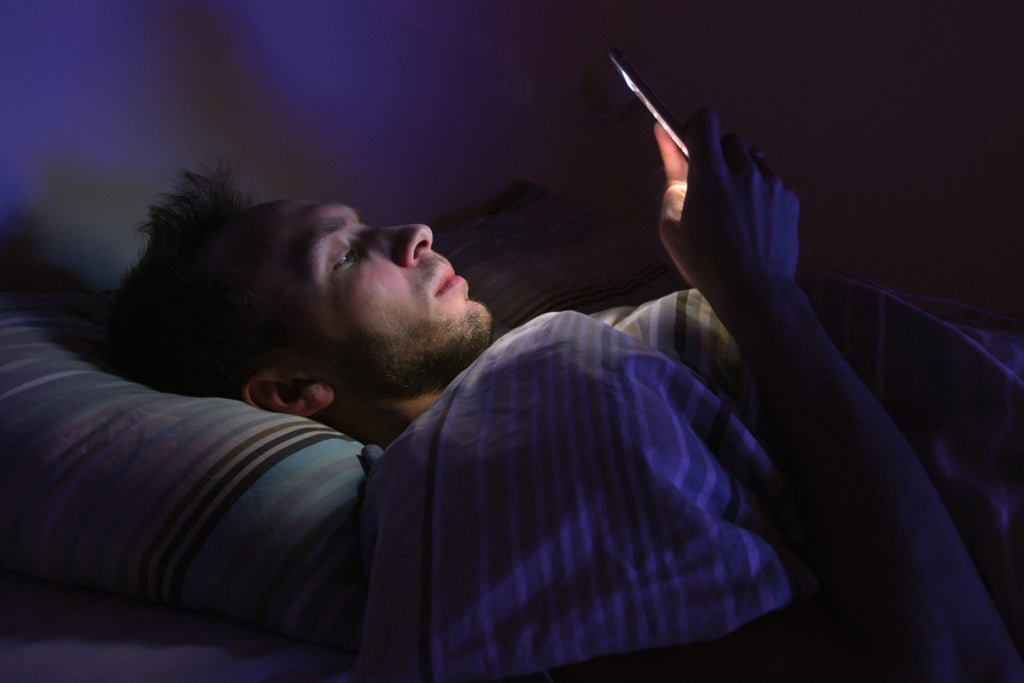Some Significant Ways of Boosting Your Melatonin - Serotonin Production
A good night's sleep is important to ensure the quality life. Sure, you feel better after a full night's sleep, but the significance extends beyond that. Sleeping enough has a strong and optimistic impact on your weight, spirit, mind, and general well-being. And the fact that we all realize the importance of sleep a lot, some of the current studies report that one out of every three Americans does not get enough sleep. This outbreak may be due to a variety of causes, but one in particular stands notable.
Melatonin levels are low in many individuals. They still lack the knowledge to spontaneously increase melatonin development on their own.
Each of us releases melatonin over the process of a 24-hour cycle, which regulates when we sleep and when we wake up. This pattern is known as the circadian rhythm, and it is very susceptible to environmental stimuli. There's an explanation why getting out of bed on a rainy day is almost impossible. Or that so many people suffer from winter depression during the cold months. Many who sit in front of a screen all day, and many who suffer from insomnia, have difficulty falling asleep.
Would You Like To Learn How to Boost Melatonin and Serotonin Production Without Any Medicine?
You begin to feel relaxed and sleepy when your melatonin levels are high. However, when the hormone amounts are light, it can be difficult to fall asleep. There are, thankfully, options to increase your melatonin levels and retake control of your sleep cycle, don’t worry! Let's take a look at our best natural ways to increase the melatonin levels.
1- Consume More Foods High in terms of Melatonin
Consuming foods rich in tryptophan will inevitably improve melatonin development. Tryptophan is an organic compound that your body does not release directly, but it is required for melatonin creation. Tryptophan is present in almost all protein-containing foods, including nuts, rice, turkey, ham, and cottage cheese.
2- Prefer a Dark Sleeping Area
Many that work the night shifts may recognize the association between daylight and sleep. Falling asleep in the early hours of the morning is a difficult challenge. They will only fall asleep when their bedroom is dark enough to inevitably increase melatonin release. Close all curtains and avoid having night lights. When there is so much light in the room, the body misinterprets the time and does not generate melatonin.
3- Handle Your Stress
Melatonin is also not the only hormone that correlates in our sleeping and waking patterns. Cortisol, the body's strongest stress hormone, also influences our circadian rhythm. Cortisol quantities, on the other hand, follow a reverse cycle. Natural development peaks during the day and declines before night.
But even so, if you are anxious, the cortisol levels keep rising, and melatonin release cannot begin before those levels begin to fall. When these two hormones are out of sync, the sleep routine collapses.
Consider sleep, yoga, workout, or goal setting in your everyday schedule. It'll also enable you to keep your emotions in check, and will lower your cortisol levels.
4- Reduce Your Caffeine Consumption
While we all enjoy a mug of coffee in the beginning, having coffee close to the end in the day inhibits the development of melatonin. Caffeine activates the body's "fight or flight" reaction and raises cortisol, the stress response. Caffeine overdose can make you depressed, anxious, and unable to sleep. Even in a stable person, these signs may be mistaken for depressive symptoms. If you still want to consume something pleasant in the night a lot, consider switching to caffeine-free beverages. Natural antioxidants found in chamomile, chai tea, and even lemon water will not give you the anxiety.
5- Stay Away From the Wi-fii Exposure at Night
Electric Radiation can be hazardous if exposed for a longer length of time. There is currently no evidence on the effects of Wi-Fi and mobile phone radiation. However, we do know that EMF exposure decreases melatonin development. Stop sleeping with your device next to your head, and if possible, turn off your Wi-Fi at night. This will cause your body to produce an adequate amount of melatonin prior to actually going to bed.



Leave a comment: